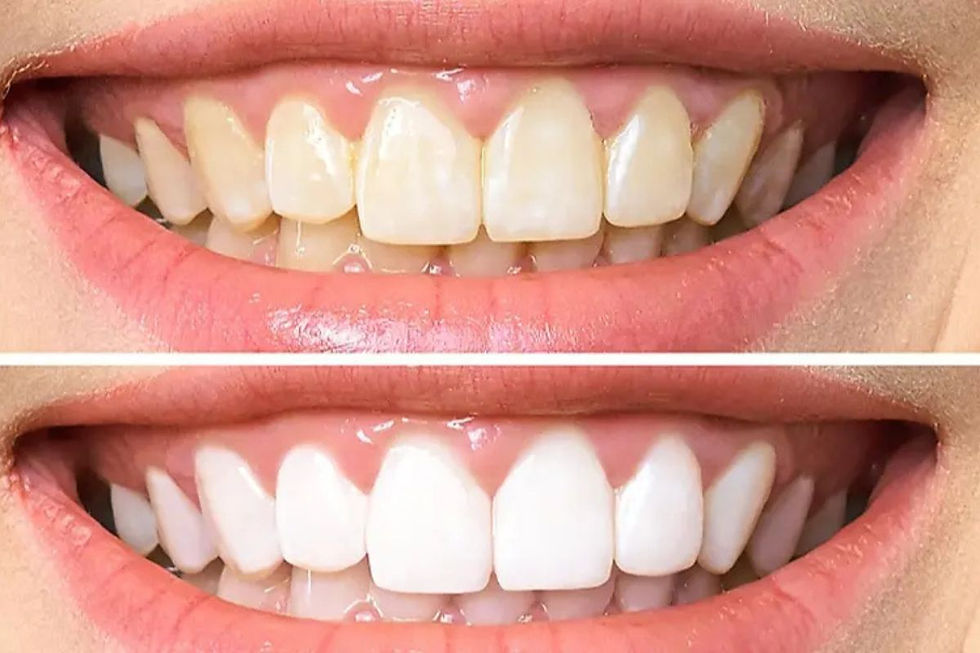Can Cavities Grow Under Sealants?
- meydenbeaurdental
- Dec 27, 2024
- 3 min read

Dental sealants are a common preventive measure used to protect your teeth from decay. They are thin coatings applied to the chewing surfaces of your back teeth (molars) to prevent cavities. But like any dental treatment, questions often arise regarding their effectiveness. One of the most common questions is whether cavities can still form under dental sealants. In this blog, we will explore this topic in detail to clear up any confusion and provide valuable information about maintaining your dental health.
What Are Dental Sealants?
Dental sealants are a plastic resin that your dentist applies to the grooves of your teeth, especially the molars, to create a barrier against bacteria, food particles, and plaque. These grooves are where cavities often start, making sealants particularly beneficial for children and adults who are prone to decay.
Sealants bond to the enamel, acting as a protective shield that helps keep harmful substances from getting into the deep pits and fissures of the teeth. Sealants are a quick and painless procedure, making them an effective and affordable option to prevent tooth decay.
Can Cavities Form Under Dental Sealants?
While dental sealants are highly effective in protecting your teeth, cavities can still form under them under certain circumstances. Several factors can contribute to the development of cavities even when sealants are in place:
1. Poor Oral Hygiene
If you neglect your oral hygiene routine, plaque and bacteria can build up around the edges of the sealant. If this plaque is not removed by brushing and flossing, it can cause decay to form around the sealant, eventually leading to cavities. Sealants are most effective when paired with regular brushing, flossing, and routine dental checkups.
2. Sealant Wear and Tear
Over time, dental sealants can wear down, especially if you grind your teeth, chew on hard foods, or have habits like nail-biting. When sealants begin to crack or wear off, the protective barrier is compromised, and bacteria can enter the grooves of the teeth. Regular checkups with your dentist will help ensure that sealants remain intact and functional.
3. Improper Application
In some cases, cavities may form under the sealant if the sealant wasn’t applied correctly. If there are air bubbles or the sealant wasn’t properly hardened, it may not bond effectively to the tooth surface. This can create gaps through which bacteria can enter and cause decay. Your dentist should check the sealants during routine visits to ensure they are still secure.
4. Existing Cavities Before Sealant Application
If a tooth already has an undetected cavity when the sealant is applied, the decay can continue to spread beneath the sealant. This is why it’s important to have a thorough dental examination before getting sealants. Dentists will often take X-rays to ensure there are no hidden cavities that could be trapped under the sealant.
How Can You Prevent Cavities Under Sealants?
To maximize the benefits of your dental sealants and prevent cavities from forming underneath, here are some essential tips:
1. Maintain a Good Oral Hygiene Routine
Brush your teeth at least twice a day with fluoride toothpaste and floss daily. This helps remove plaque and bacteria from the surfaces of your teeth, including around the edges of your sealants. Make sure to pay extra attention to the back molars and other areas where sealants are applied.
2. Visit Your Dentist Regularly
Regular dental checkups are crucial to monitor the condition of your sealants. Your dentist can check for any signs of wear or damage and replace sealants as needed. Additionally, your dentist will check for any early signs of cavities or other oral health issues that might need attention.
3. Limit Sugary and Acidic Foods
Cavities are primarily caused by the bacteria that feed on sugar and acid. By limiting your intake of sugary foods, sodas, and acidic drinks, you can reduce the chances of decay developing under your sealants.
4. Avoid Grinding Your Teeth
Teeth grinding can cause sealants to wear down prematurely. If you grind your teeth at night, talk to your dentist about getting a night guard to protect your teeth and sealants.
Conclusion
Dental sealants are an excellent preventive measure against cavities, but they are not foolproof. Cavities can still develop under sealants due to poor oral hygiene, wear and tear, improper application, or pre-existing cavities. The key to ensuring the longevity and effectiveness of your sealants is maintaining a proper oral care routine and visiting your dentist regularly for checkups.
If you are looking for Dental Sealants in Bellevue, make sure to consult with a trusted dentist who can evaluate your needs and provide the best preventive care for your teeth. Regular visits will help ensure that your sealants remain intact and your smile stays healthy!



Comments